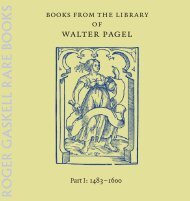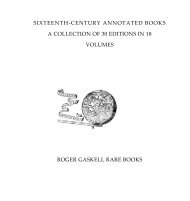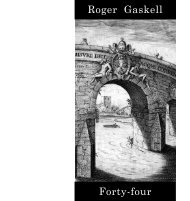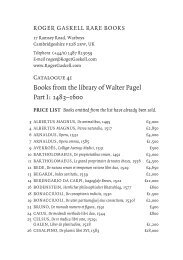pdf - Roger Gaskell Rare Books
pdf - Roger Gaskell Rare Books
pdf - Roger Gaskell Rare Books
Create successful ePaper yourself
Turn your PDF publications into a flip-book with our unique Google optimized e-Paper software.
This is the last work published in his lifetime by Marci of<br />
Kronland, the most important Bohemian natural philosopher of<br />
the scientiWc revolution, variously dubbed ‘the Bohemian Plato’,<br />
‘the Bohemian Galileo’, and the ‘Hippocrates of Prague’. It sums<br />
up his life’s work, in embryology, the philosophy of medi cine,<br />
optics and mechanics. Marci ‘then at the height of his career<br />
and – at 67 – having achieved European renown... reviewed in a<br />
cross section through all parts of Natural Philosophy the current<br />
opinions of his time against the background of ancient wisdom’<br />
(Pagel 1967, p. 318). As well as the extensive sections on physics<br />
and cosmology, Pagel has shown that the book is important for<br />
Marci’s report of his meeting with Harvey (which Pagel was the<br />
Wrst to notice) and his critique of Harvey’s theory of generation,<br />
and discussion of his own theory, in several important points of<br />
which Marci was Harvey’s unacknowledged precursor.<br />
Harvey and Marci met when Harvey stayed in Prague in<br />
1636, as physician to Thomas Howard, Earl of Arundel, in<br />
the diplomatic mission sent by Charles I to negotiate with<br />
the Emperor Ferdinand III. Marci was familiar with Harvey’s<br />
discovery of the circulation for which he expresses great<br />
admiration. Pagel writes that ‘Marci deserves a place in the Wrst<br />
rank of the advocates of Epigenesis between Aristotle and Harvey<br />
(Pagel 1967, p. 317). Marci’s most important, and well justiWed<br />
criticism of Harvey, where the present work presents an advance<br />
on Harvey’s thinking, was his rejection of Harvey’s state ment that<br />
there was no actual union of semen and ovum, Harvey believing<br />
in an ill deWned vital principle.<br />
Pagel’s close study of Marci’s career and works, in particular in his relations<br />
with Harvey, are hard to reconcile with Lubos Nový’s statement in DSB that<br />
Marci was intellectually isolated from his contemporaries. On the contrary,<br />
he was well informed, and at the end of his life both the Jesuits and the Royal<br />
Society tried to recruit him as one of Europe’s leading natural philosophers<br />
(Smolka p. 226; Pagel 1967 pp. 289–90: Nový, in 1970, was evidently unaware<br />
of Pagel’s work).<br />
Walter Pagel and P. Rattansi, ‘Harvey meets the “Hippocrates of Prague” (Johannes<br />
Marcus Marci of Kronland)’, Medical History 8 (1964) 78–84; Walter Pagel,<br />
William Harvey’s Biological Ideas (New York, 1967), pp. 286–323; Josef Smolka,<br />
‘The ScientiWc Revolution in Bohemia’, in Roy Porter, ed. The ScientiWc Revolution<br />
in National Context (Cambridge, 1992), pp. 210–239.<br />
115<br />
LAMARCK, Jean Baptiste Pierre Antoine de Monet de (1744–1829)<br />
Recherches sur l’organisation des corps vivants: et<br />
particulièrement sur son origine... précédé du discours d’ouverture<br />
du cours de zoologie donné dans le Muséum National d’Histoire<br />
Naturelle, l’an X de la République.<br />
Paris: chez l’auteur... [et] Maillard [no date in imprint], 1802.







